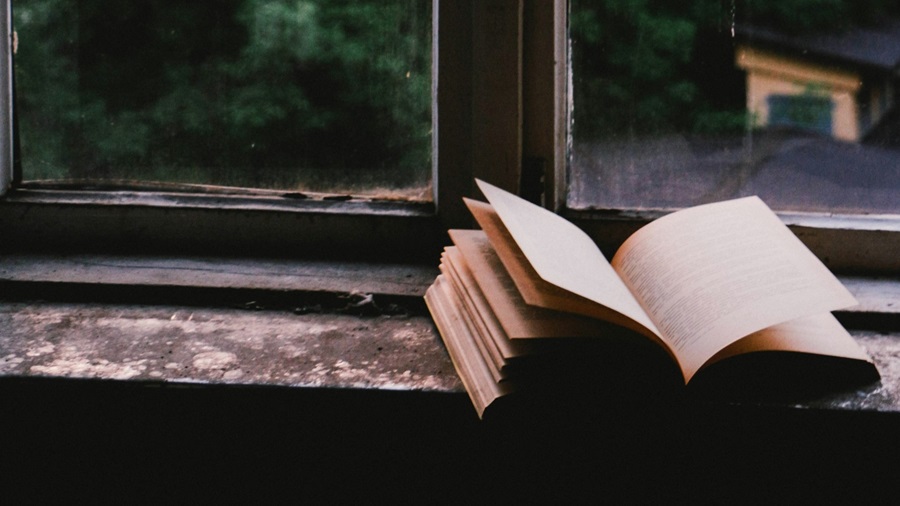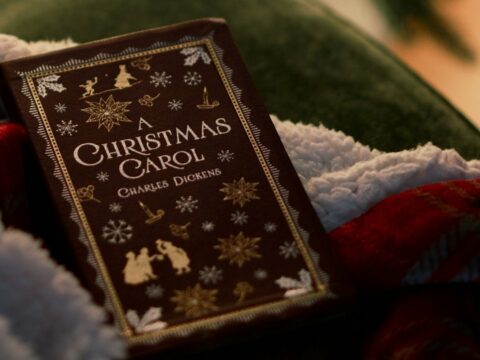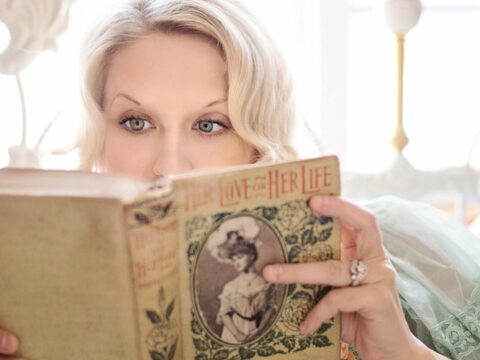So full disclosure: I’ve read only one fictional book since my daughter was born last year. And by “read” I mean I listened to the audiobook. A busy mom’s got to do what a busy mom’s got to do. But that’s not to say that I haven’t read quite a lot in the past year. I just happen to be reading nonfiction lately. Right now, I’m reading nonfiction books, following blogs about various nonfiction subjects, and listening to podcasts about current events and true stories. And honestly? I’m of the opinion that you can learn just as much about writing from nonfiction as fiction. Sometimes more.
Don’t get me wrong, if you’re writing fiction, there’s nothing that can replace reading in your genre and familiarizing yourself with what your audience reads. But today, let’s discuss all the benefits of reading nonfiction—as well as my favorite nonfiction recommendations.
First, Reading Nonfiction Makes You Smarter
Need I say more? Reading in general introduces you to new ideas and new ways of thinking. But reading nonfiction about real history, real people, and actual real stuff builds up your mental database of how the world works. And how people work too.
I have great respect for nonfiction writers who become experts in a certain subject and then compile their knowledge for the rest of us to enjoy and ponder. I’ve said before that the best writers write about what fascinates them. What better way is there to find something fascinating than by reading nonfiction and learning as much as you can? When writers put in the work to research a new-to-them subject for a story, that’s where magic happens. I firmly believe that the topic doesn’t matter. As long as it’s something you find interesting, it will add to your writing skills and your ideas for stories.

Here are three nonfiction books that truly opened my mind when I read them:
- Guns, Germs, and Steel by Jared Diamond—This is a phenomenal holistic view of human history and the tipping points that allowed hunter-gathers to industrialize in cultures all over the world. This book is PACKED with ideas I’d never considered before.
- Rejection Proof by Jia Jiang—This book is one of my favorites and one of the most life-changing pieces of nonfiction I’ve read. It follows the author’s thought-provoking and often hilarious journey of desensitizing himself to rejection. It’s endlessly charming and inspiring.
- Breath by James Nestor—This is the book I’m currently reading about the science of nose breathing versus mouth breathing and how the way you breathe affects every aspect of your health. I had no idea something as simple as breathing could be so complex and fascinating.
Reading Nonfiction about Real People Is the Ultimate Study of Character
Fictional characters are great and all, but what about the lives of real people? The memoir is perhaps the greatest window into the human soul possible. You’re reading about the journeys and inner struggles of real people—sometimes completely mediocre people—who overcome crazy odds and become truly exceptional people. At least that’s usually the type of memoir that goes viral on social media and sells millions of copies. Lots of nonfiction is autobiographical, which opens up a whole world of people sharing their lives on the page and bearing their personal stories in a way that you won’t find in any other genre.
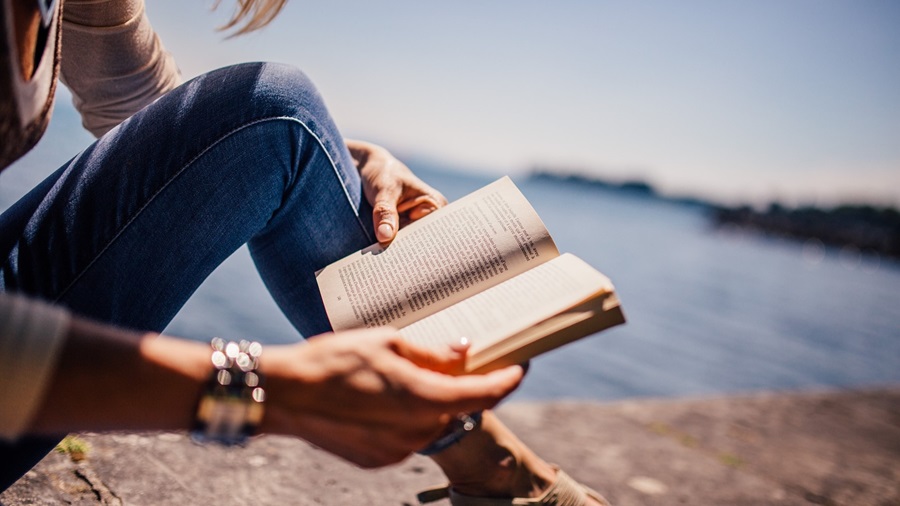
My point is that there are really amazing human beings in the world. Reading nonfiction about them is a fantastic way to learn more about motivations, the unique ways that human beings grow and change, and what becoming a hero actually looks like. Reading nonfiction about human psychology is another awesome way to understand human beings and write characters who are compelling and believable.
Here are three nonfiction memoirs that I highly recommend and also couldn’t put down:
- In Order to Live by Yeonmi Park—Another book I would describe as life changing. This is the story of a North Korean defector who survives human trafficking in China and eventually makes her way to the United States. This book is heavy, thought provoking, and super inspiring.
- The Diary of a Young Girl by Anne Frank—Anyone who hasn’t read this book should. A true classic about a Jewish teenager in hiding during the Holocaust. I don’t know that any book captures the spirit of young adulthood and growing up better than this one.
- The Last Lecture by Randy Pausch—I remember reading this book for the first time so vividly. It’s about a professor with a terminal illness trying to leave behind a legacy for his kids. Despite the heavy subject matter, this book is SO heartwarming and all about living out childhood dreams.
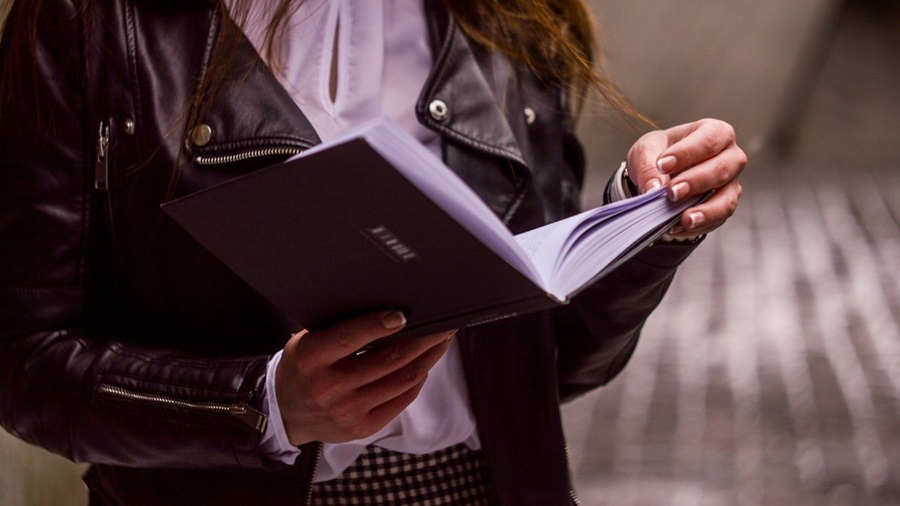
Lastly, Reading Nonfiction Can Uncover Awe-inspiring Writing
I used to think that nonfiction by definition is stale and boring. And often written like a textbook. While it’s true that nonfiction can get pretty sterile, there is so much nonfiction out there that’s written WAY better than most fictional books. There’s a whole subset of nonfiction books that I would classify as literary nonfiction and is absolutely delicious to read. Who said nonfiction has to be boring?
They say that truth is stranger than fiction, so I guess you could say that nonfiction is the place where the most unexpected voices and unusual circumstances happen. I think this is why some of the best writers out there choose to write nonfiction, especially the type that has impact on society and tells true stories that really matter. Therefore reading nonfiction can be a great way to learn how to write REALLY well depending on the book you choose.
Here are four examples of books with fantastic writing that I seriously need to reread soon:
- An American Childhood by Annie Dillard—This is one of the best written books I have ever read, fiction OR nonfiction. It’s a collection of short stories about Annie Dillard’s experiences growing up in Pittsburgh in the 1950s and 60s. Her writing is lush, flowing, and filled with nostalgia.
- Tuesdays with Morrie by Mitch Albom—Another one of my all-time favorite books. Much of this book is transcripts of interviews between the author and his favorite professor who’s slowly declining from ALS. The writing style and the way this book weaves together plotlines is absolutely masterful.
- Outliers by Malcolm Gladwell—This book’s statistics of high achievers around the world are truly wild. But it’s also a shining example of good writing. Malcolm Gladwell delivers such polished writing and persuasive rhetoric every single time. You can’t go wrong with any of his books.
- I’m Glad My Mom Died by Jennette McCurdy—One of the best books I’ve ever read. This is an autobiography of an actress detailing her relationship with her abusive mom. Jennette’s voice and delivery of this story is so consuming that I read the whole thing in two days.
And Hey, I’m Always Looking for More Nonfiction to Read
If you have recommendations of other nonfiction books that have made you a better writer, definitely reach out to let me know. I may not have the time that I used to, but even in this crazy season of life, I still love to read. And I’m always primed and ready for the next nonfiction gem that will blow my mind. ❧

